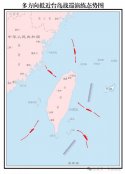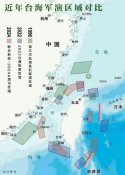Someone's not a fan of traditional Chinese charactersThese are frankly uninteresting and rather lame.
You are using an out of date browser. It may not display this or other websites correctly.
You should upgrade or use an alternative browser.
You should upgrade or use an alternative browser.
PLA Strategy in a Taiwan Contingency
- Thread starter pugachev_diver
- Start date
Someone's not a fan of traditional Chinese characters
Honestly, it would have been better if it were just words rather than having any photos and high school level photoshop work
escobar
Brigadier
42 aircraft were reported, 28 crossing the median line.Are we seeing a ring being formed surrounding the entirety of the rebel island?
Maybe the PLA exercise areas around Taiwan will be donut-shaped someday in the future.
View attachment 129953
15 Navy ship,
16 Coast Guard ships.
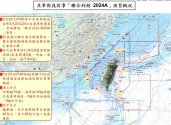
Last edited:
So it looks like this time they basically hugged the contiguous zone. I guess next time they escalate a response they’re hugging the 12 nm boundary. And if nothing happens there the next time after that it’s just straight up “your waters are actually our waters”.42 Chinese military aircraft were reported around Taiwan, 28 crossing the median line.
15 Navy ship,
16 Coast Guard ships.
View attachment 129976
Are we seeing a ring being formed surrounding the entirety of the rebel island?
Maybe the PLA exercise areas around Taiwan will be donut-shaped someday in the future.
View attachment 129953
More like tightening noose shaped…
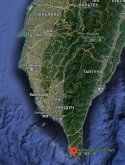

Taiwan deployed launchers with Hsiung Feng II (HF-2) and Hsiung Feng III (HF-3) anti-ship missiles in response to the PLA Joint Sword 2024 exercise in Kenting National Park in Pingtung County.
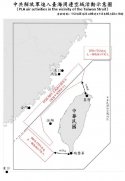
The Taiwanese MoD as part of the Joint Sword 2024A exercise reported that a total of 49 aircraft were observed, of which 35 crossed the so-called “median line” in the Taiwan Strait. By aircraft type, Su-30, J-16 and KJ-500 AWACS were observed.
And this:
manqiangrexue
Brigadier
Early June comes...
Global Press: Don't blame us; blame the anonymous source.
Yes, Japan Will Defend Taiwan
For Japan, peace in the Taiwan Strait is a matter of national survival. A proper discussion of Japanese intervention should thus ask “how” not “if.”Japan officially maintains a policy of strategic ambiguity toward the issue of Taiwan’s sovereignty. Taiwan’s security, however, is an unambiguous and essential interest in Tokyo. Should Beijing decide to unify Taiwan by force, Japan’s strategic interest, deep affinity for the Taiwanese, and security alliance with the United States will compel Tokyo to defend its southern neighbor. For Japan, peace in the Taiwan Strait is a matter of national survival.
In 1969, the United States and Japan issued a joint statement obligating Tokyo to permit U.S. combat basing in its territory should Taiwan come under threat in exchange for the administrative return of Okinawa. Commonly referred to as the “,” this effectively erases the illusion that the Japanese public or pro-Beijing officials have veto power over Tokyo’s decision to participate. The Japanese government undoubtedly understands that reneging on its commitment would mean the disintegration of the Japan-U.S. security alliance upon which so much rests.
Japan will defend Taiwan because doing so is integral to its national security. The proper discussion of Japanese intervention should examine “how” not “if.” Accepting China’s control over Taiwan would effectively mean also accepting Japanese subordination to Beijing. If this prospect does not constitute a threat to Japan’s national existence, then nothing does.
Japan defending Taiwan is what's known as a Win-Win-Win-Win-Win-Win cooperation.
US gets more cannon fodder against China
China gets to settle old debts
Japan gets to overthrow their white masters
Taiwan gets noticed by its senpai
South Korea gets to see Japan take a beating
North Korea gets revenge on Japan
Is there even a loser in this?
Hua Chunying reminded me of another winner
Liuqiu gets independence
Last edited:

